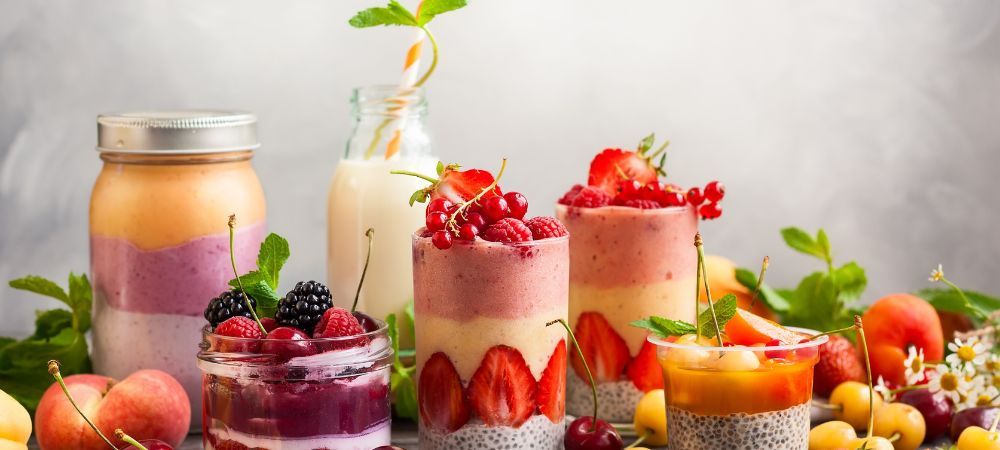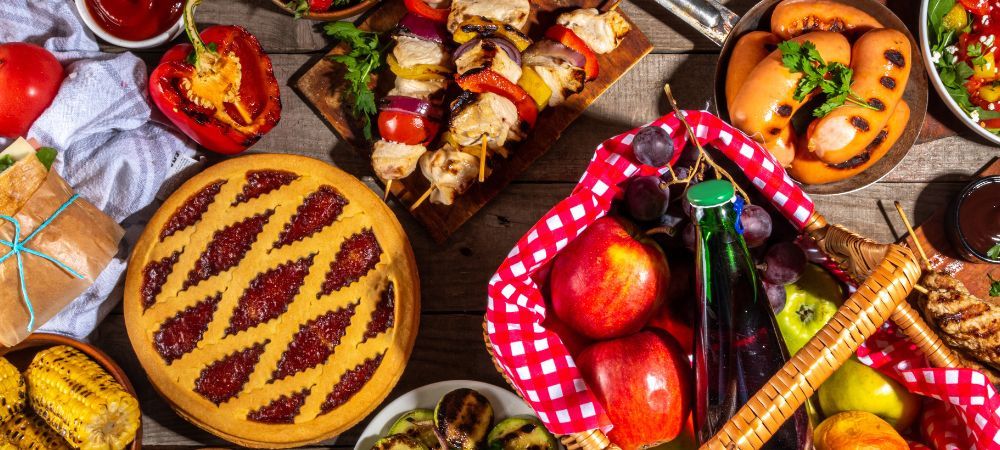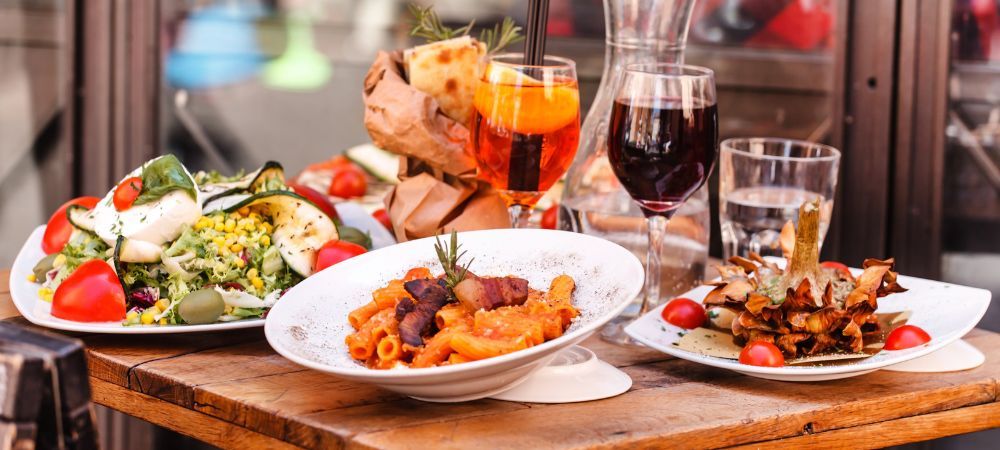

Food safety is so important in the food and drink industry. It's like, super crucial to make sure that the food we eat is safe and won't make us sick. Obtain the news see right now. Without proper safety measures, like washing hands and cooking food thoroughly, there could be some serious consequences.
I mean, imagine if a restaurant didn't follow proper food safety guidelines and someone got really sick from eating there. That would be like, totally awful! Not to mention the damage it could do to the restaurant's reputation. So yeah, food safety is definitely something that shouldn't be taken lightly.
It's not just about following rules and regulations either – it's about caring for the well-being of others. We all deserve to feel confident that the food we're eating is safe and won't harm us in any way. So next time you're preparing or serving food, remember how important it is to prioritize food safety.
In conclusion, ensuring food safety in the food and drink industry is a top priority that should never be ignored. By taking simple precautions and being mindful of potential risks, we can all play a part in keeping ourselves and others safe from harmful bacteria or contaminants. Let's all do our part to promote a culture of awareness around this issue!
Hey there! Let's talk about common foodborne illnesses and what causes them. So, when we eat food that is contaminated with harmful bacteria, viruses, or parasites, it can make us sick. Yikes!
One of the most well-known foodborne illnesses is salmonella. This nasty bug can be found in raw meat, poultry, eggs, and unpasteurized milk. When these foods aren't cooked properly or handled correctly, they can become a breeding ground for salmonella.
Another culprit is E.coli, which is often found in undercooked ground beef or contaminated produce. If we don't wash our fruits and veggies thoroughly before eating them, we could be putting ourselves at risk for an E.coli infection.
And let's not forget about norovirus – this sneaky virus can spread quickly through contaminated food or water. If we consume something that has been touched by someone who is infected with norovirus, we could end up feeling pretty miserable.
So remember to always practice good food safety habits like washing your hands before cooking and eating, cooking foods to the proper temperature, and storing leftovers in the fridge promptly. Stay safe out there!
Man, have you seen the latest food trends?. It's crazy how consumers are reacting to all these changes in the industry.

Posted by on 2024-05-14
When it comes to eating healthy while dining out or traveling, it can be challenging for many people.. However, there are some strategies that can help you maintain a balanced diet even when you're not at home.
One tip is to choose restaurants that offer healthy options on their menu, such as salads, grilled fish, or steamed vegetables.

Posted by on 2024-05-14
Overall, I gotta say this restaurant ain't worth the hype.. The food was mediocre at best and the service was downright terrible.

Posted by on 2024-05-14
Hey there! When it comes to food safety, it's super important to follow some guidelines for proper food handling and storage. Neglecting these rules can lead to serious health issues, so let's make sure we're doing everything right!
First off, always wash your hands before touching any food. This helps prevent the spread of harmful bacteria that can make you sick. And don't forget to keep raw meats separate from other foods to avoid cross-contamination.
When storing leftovers, make sure to put them in airtight containers and refrigerate them promptly. Leaving food out at room temperature for too long is a big no-no because it allows bacteria to grow.
Oh, and never thaw frozen meat on the counter! Instead, thaw it in the fridge or microwave to prevent bacterial growth. It's all about keeping our food safe and delicious for us to enjoy.
So remember, following these guidelines for proper food handling and storage is key to staying healthy and happy. Let's do our part in keeping our meals safe and tasty!

Keeping clean and sanitized cooking surfaces and utensils is super important for food safety, ya know? If we don't do it, we could end up getting sick from bacteria or other nasty stuff. No one wants that to happen, right?
When we cook our food on dirty surfaces or with dirty utensils, we're basically asking for trouble. The germs can easily transfer from the surface or utensil to our food, which can make us really ill. Ain't nobody got time for that!
So, it's crucial that we take the time to properly clean and sanitize our cooking areas and tools before and after each use. This means scrubbing down countertops, cutting boards, knives, pots, pans - you name it! Don't forget about those hard-to-reach spots either; they can harbor all sorts of grossness.
By maintaining cleanliness in our kitchen, we can prevent cross-contamination and keep ourselves and our loved ones safe from foodborne illnesses. Let's not take any chances when it comes to our health - always remember to keep those cooking surfaces and utensils spick and span!
Proper cookin' temperatures are vital to prevent bacteria from growin' in our food. If we don't cook our food at the right temperature, those sneaky little germs can make us sick! So, it's important to always use a thermometer to check that our meat is cooked all the way through. Oh man, ain't nobody got time for food poisonin'! Let's make sure we follow them guidelines and keep ourselves and our loved ones safe from harm. Ain't no room for error when it comes to food safety, y'all!

Regulatory bodies play a crucial role in making sure that food safety standards are met. Without them, we might not know if the food we eat is safe or not! They help to make sure that companies follow all the rules and regulations when it comes to producing and selling food.
If regulatory bodies didn't exist, who knows what kind of unsafe practices companies might engage in? It's important that they are there to keep us safe!
Sometimes it can be annoying when regulatory bodies come in and inspect our restaurants or food manufacturing facilities. But hey, it's better to be safe than sorry, right?
Overall, regulatory bodies are an essential part of keeping our food supply safe. So next time you see a health inspector at your favorite restaurant, just remember they're there to protect us from getting sick!
When we talk about potential risks associated with consuming contaminated food or drinks, it's definitely something to take seriously. I mean, nobody wants to get sick from something they eat or drink, right? So, making sure that our food is safe to consume is super important.
If we don't pay attention to the quality of the food we're eating, there could be some serious consequences. For example, if we eat something that's been contaminated with bacteria or other harmful substances, it could lead to food poisoning or other health problems. And let me tell you, nobody wants to deal with that kind of stuff.
So, what can we do to avoid these potential risks? Well, first off, we should always make sure to properly store and prepare our food. This means keeping raw meat separate from other foods and making sure everything is cooked thoroughly before eating. Plus, washing our hands and kitchen surfaces regularly can go a long way in preventing contamination.
Additionally, paying attention to expiration dates and avoiding foods that look or smell off can help us steer clear of any nasty surprises. Trust me when I say it's better to be safe than sorry when it comes to what we put into our bodies.
In conclusion, staying vigilant about the safety of our food and drinks is essential for our well-being. By taking simple precautions and being mindful of what we consume, we can reduce the risk of falling ill due to contaminated items. So next time you're about to dig into a meal or grab a drink, remember: better safe than sorry!
Hey there! When it comes to making sure the food and drinks you're putting into your body are safe, there are a few things you can do. First off, always check the expiration dates on packaging. You don't want to be eating something that's gone bad! Also, make sure to wash your hands before handling any food. It may seem like a small thing, but it can make a big difference in keeping germs away.
Another tip is to avoid cross-contamination by using separate cutting boards for raw meat and produce. This way, you won't accidentally spread bacteria from one food to another. And don't forget to store leftovers properly in the fridge - no one wants to get sick from old food!
Lastly, if you ever have any doubts about the safety of a certain product, trust your gut and throw it out. It's better to be safe than sorry when it comes to what you're eating and drinking. So remember these tips next time you're preparing a meal or grabbing a snack - your body will thank you!